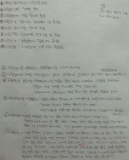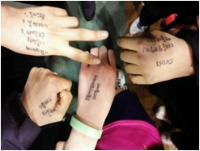Purpose The purpose of this study was to understand student athletes coaches’ occupational challenges from the dual perspectives(social relationship-political system), to analyze the nature of the coping strategies for the challenges, and to provide implications for building a human rights-friendly student athletes club culture. Methods Five coaches(n=5, average career length= 19.2 years) were selected through purposeful sampling. Data were collected by semi-structured interviews with participants. The collected data were inductively analyzed(Patton, 2015). Results First, participants struggled with informal roles demanded by the interested parties(principals, athletic directors, parents, and university coaches). Second, the system for protecting student athletes’ learning rights, the 52-hour work system and the human rights system added difficulties to the coaches’ work environment. Third, the disharmony between interested parties’ demands and government agencies’ institutional ideals pushed participants to choose anti-institutional, un-ethical, un-educational coping strategies. Conclusion The findings suggest that the government, academia and the community should empower coaches as ‘the subject of reform’ who can solve the problem together rather than regarding them as ‘the object of reform.’ Furthermore, this conclusion is expected to provide implications to alleviate disharmony between interest parties’ demands and government agencies’ systems.’

Purpose The purpose of this study was to investigate the badminton players psychological disturbance and coping strategies types and characteristics. Methods To achieve the purpose of this study, an open-ended questionnaires were used targeting 194 badminton players, 25 Q samples were selected by collected data as the self – statement. Q samples were classified depending on their subjective experience by P samples composed of active badminton players who had more than eight years of athletic career; this data were coded and analyzed by VARIMAX rotation. Results The results revealed by the Q methodology were below. First of all, the first type is named as (Internal Disturbance - Passive Coping) type. The first type is psychologically disturbed by internal factors, and negative about external coping strategies. Second, the second type showed the higher awareness of coping strategies than the other types; It was named as (Active Coping) type. Third, The third type recognized the burden of victory and self-confidence, and it was named as the type of (Victory Obsession). Conclusion In the badminton competition, the deterioration of concentration and judgment ability because of psychological disturbance has a serious effect on the performance. Therefore, based on the results of this study, it will be possible to improve the performance by appropriate psychological intervention through the characteristics of the athletes.


This study conducted to explore K-League (Korea Professional Football League) referees’ psychological experience and coping strategies just after the moment of wrong judgment. Open-ended questionnaire were conducted on 35 full-time referees who participated in the K-League winter training camp. The data were categorized by inductive content analysis. The results were as follows. Psychological experience yielded 45 raw data points, which were based on the following 10 sub categories; increased anxiety, rumination wrong judgment, concern about reprimand, and feeling apologetic; and four general categories including, psychological fragmentation, feeling helpless, concern about reputation, and acknowledgment of wrong judgment. Thus, K-league referees experience a psychological turbulence just after the moment of the bad calls and worsen feelings of helplessness about the wrong decisions. Also, K-league referees worry about further disadvantages following the misjudgement and admit their bad calls feeling sorry for teams and athletes who were in the incidents. Coping strategies yielded 55 raw data points from which the following categories were identified 11 sub categories; increasing concentration, attempting to forget wrong judgment, apologizing on wrong judgment, and change in thinking; and four general categories including, emotional self-support, avoiding situation, correcting the error and thinking, and changing of refereeing approach. Therefore, K-league referees enhance their concentration in order to not reoccur wrong judgement after the moment of the mistakes and try to forget the incidents of wrong judgement. Also, K-league referees apology to the teams and athletes who experienced the bad calls and make efforts to correct the mistakes if possible. Moreover, K-league referees try to modify a criteria of judgement in order to manage aftereffects of wrong judgement and make decisions correctly by approaching the scenes of the wrong judgement. The study emphasizes the importance of referee psychological stability on the field and the need for psychological support. The study is expected to encourage further research on sports referees in Korea to ensure they receive appropriate psychological support.
PURPOSE This study comprehensively compared the perception and interaction of player–coach in the development of mental toughness in soccer. METHODS Data were collected through semi-structured individual interviews from 12 participants (6 athletes and 6 coaches), analyzed using the grounded theory by Strauss and Corbin, and they were compared to the group of athletes and coaches, respectively. RESULTS The following results were obtained: (1) Both athletes and coaches recognized that the experience of coping with the pressure present in competition was a central phenomenon in the development of mental toughness. (2) Regarding the situation and condition that lead to coping with pressure, the athletes emphasized the individual's goal orientation in the context of competitive situations and environmental conditions, while the coaches emphasized the athletic attitude toward competition and development in childhood. (3) The athlete–coach interaction was identified as an intervening condition affecting the experience of coping with pressure. (4) As the action–reaction strategy for the development of mental toughness, the optimistic thinking was emphasized for athlete and achievement-oriented thinking for coach; thus, it differed in the characteristics of mental toughness. CONCLUSIONS This study presented the results of an integrated comparison of mental toughness, which can vary depending on the contextual specificity (soccer) and the subject of perception (athlete– coach), especially indicating the importance of the player–coach interaction, which can contribute to the strategy to be used in mental toughness development.

[Purpose] This study was designed to explore Yuna Kim’s psychological strengths and the contextual factors, which led her to obtain the gold medal and the reflection of peak performance and preparation at the 2010 Olympics. It was hoped that by sharing the experience of one of the top athletes, other athletes would learn from her and prepare themselves better for Olympics in the future. [Methods] A case study method was applied with a qualitative approach. To obtain the purpose of the study, five in-depth interview sessions including introductory and member checking procedures were conducted. The interviews were recoded and transcribed verbatim, and content analysis was used to inductively analyse the data. [Results] The four general dimensions that were discovered in the results included Social-external Factors, Personal Traits, Coping Strategies, and Peak Performance. The social-external factors consisted of social support and attached/detached relationships while personal traits were personality traits, confidence and motivation. Coping strategies to overcome external and situational pressures were detached coping and resilience whereas peak performance was reflected on flow and the state of being mindful. [Conclusion] In conclusion, Yuna Kim’s strength was parallel with the previous research on the top athletes and other findings such as adaptive perfectionism and a sense of rivalry in the research were discussed.


This study was to verify the structure of efficacy related to performance perceived by short-track athletes when playing a match. Therefore, 50 players answered open questionnaires and 200 players participated in construct validity verification, a total of 250 players of short-track members of national, business and university team were sampled during the research phase. The data was analyzed through the study procedures. The results were as follows: First, efficacy structure of players during the match were categorized into three groups as game managing strategy(including course management, race control, match management and selective attention ability), psychological control ability(including positive imagery, match competition, competitive spirit, ability to handle hardship, anxiety control, and patience), and physical usage of ability(including physique, endurance, and quickness). Second, the result of the first construct validity verification through exploratory factor analysis showed 7 factors in 29 items as game management, course management, psychological control, physical use, coping with hardship, speed control and psychological stability. Finally, as a result of confirmatory factor analysis, short-track self-efficacy showed the 5 factor in 15 items except for coping with hardship and psychological stability.

The purpose of this study was to examine the effects of happiness improvement program on psychological variables which were happiness feeling, self-esteem, interpersonal relationship, internal-external locus of control, stress, coping, perceived performance and physiological variables such as cortisol and serotonin of collegiate badminton players. The participants consisted of 10 collegiate badminton players. Happiness improvement program for collegiate badminton players was developed by previous literatures, in-depth-interview, psychological test data, and consultation of happiness improvement experts. The happiness improvement program consisted of 12 intervention program: orientation, rapport development and the understanding happiness, self-esteem enhancement techniques, interpersonal relationship strategies, stress and coping management, peak performance methods, and action plan of happiness improvement program. Each program was applied to participants in about 90-120 minute a session(2-3 times session a week). The instruments of this study were made up of three broad categories: (a) psychological data, b) physiological data, and (c) qualitative data. Firstly, happiness improvement program significantly increased happiness feeling, self-esteem, internal-external locus of control, interpersonal relationship capability, coping skills of collegiate badminton players. Secondly, happiness improvement program significantly decreased stress of collegiate badminton players. Thirdly, participants positively perceived the effects of happiness improvement program on psycho-physiological variables. The limitations of this study and future implications were discussed.

This study aimed to explore the types of traumatic event experienced by Volleyball players and then prepare to take-off the serial process of posttraumatic growth to schematize a causal network by organizing the factors for overcoming adversity. Participants experiences were collected by distributing open-ended questionnaires to 77 professional Women's volleyball players in 2013-2014 and collected data was categorized by inductive content analysis. These results were schematized by the causal network. As a result of the study, according to the trauma were categorized into four general areas: member conflict, competence loss, physical injury, and coach conflict and the emotions relative to the trauma were categorized into four general areas: powerlessness, pressure, dejection, and hostility also coping factors were categorized into three general areas: social support, intervention strategies, and psychological control. Finally, positive growth emerged as psychological leap, performance improvement, psychological maturity, and emotional stability. And as a result of the categorized study, bring about a better understanding to the posttraumatic growth by causal network. Based on the study results, that volleyball players experienced a positive development on themself after overcoming the problem that they had suffered psychological scars from a traumatic event. In doing so, they contributed to the formation of resources that helped them in their positive lives. In this regard, this study expects to provide the players who have been scratched in mind because of the traumatic experience.






Values, such as development and social responsibilities, are added on victory-oriented Korean sport. Those change of values are along with discussions regarding improvement of players’ training environment, however, discussions on improvement of players’ training environment so far rather focused on ideological concepts, such as players’ holistic human development and human rights, therefore, there was a lack of discussion on practical training methods or teaching methods. This study focused on mental coaching as a specific method for improvement of players’ training environment. Mental coaching provides players with performance enhancement, personal growth, and self-actualization utilizing mental training, consulting, and mentoring in their training processes. This study examined a possibility of introduction of mental coaching as a training camp method for players by creating a training camp reflected on mental coaching perspectives and verifying the program effects of application. First of all, a mental coaching training camp was created through consultations with mental coaches, supervisors, and coaches. Goals of the mental coaching training camp were development of competition-routines, establishment of competition-circumstance coping strategies, comprehension of elite-players’ psychological resources, goal-setting, and motivation and the program consist of badminton competitions, mental education, a special lecture by an Olympic gold medalist, tracking, and sharing. The mental coaching training camp proceeded with middle and highschool badminton players and 31 coaches during three-days and four-nights. As results, the training camp was effective for players’ performance enhancement, personal growth, and self-actualization and team coaches realized a necessity of improvement in terms of their training and teaching behaviors. In other words, mental coaching training camp played a role as a source of long-term change as well as short-term results, thus, this study verified that the mental coaching can be introduced as a training camp method. It is anticipated that this study can provide sport fields and academic sport areas with an opportunity to consider both training contents and methods when it comes to discussion players’ training environment development.


